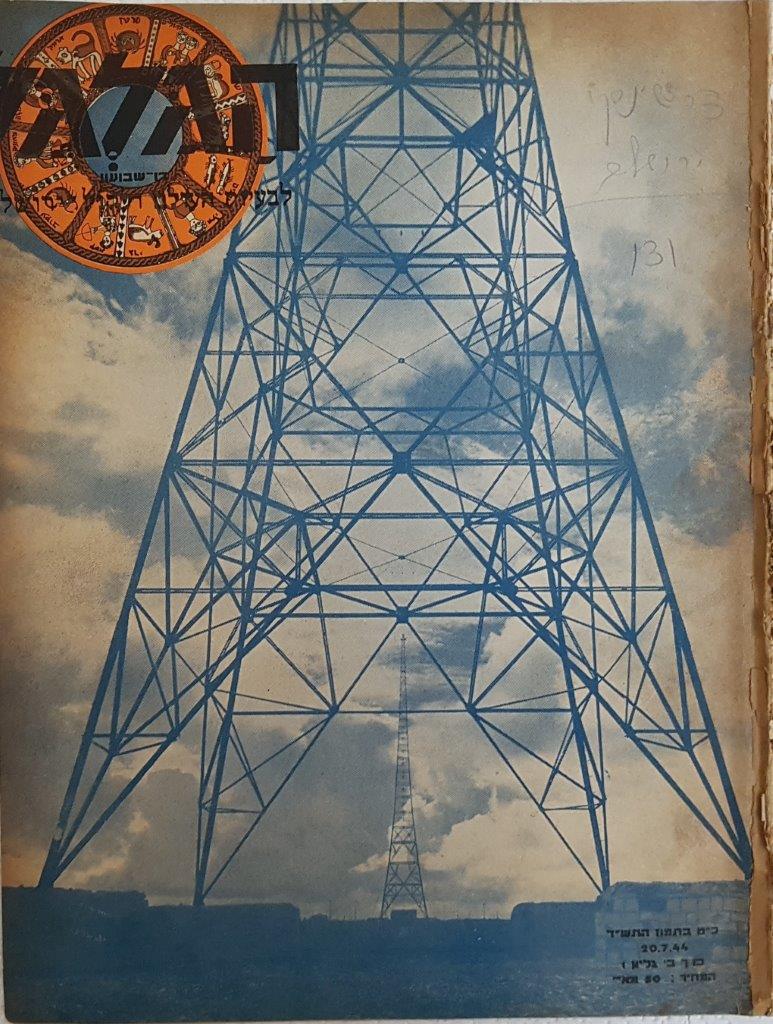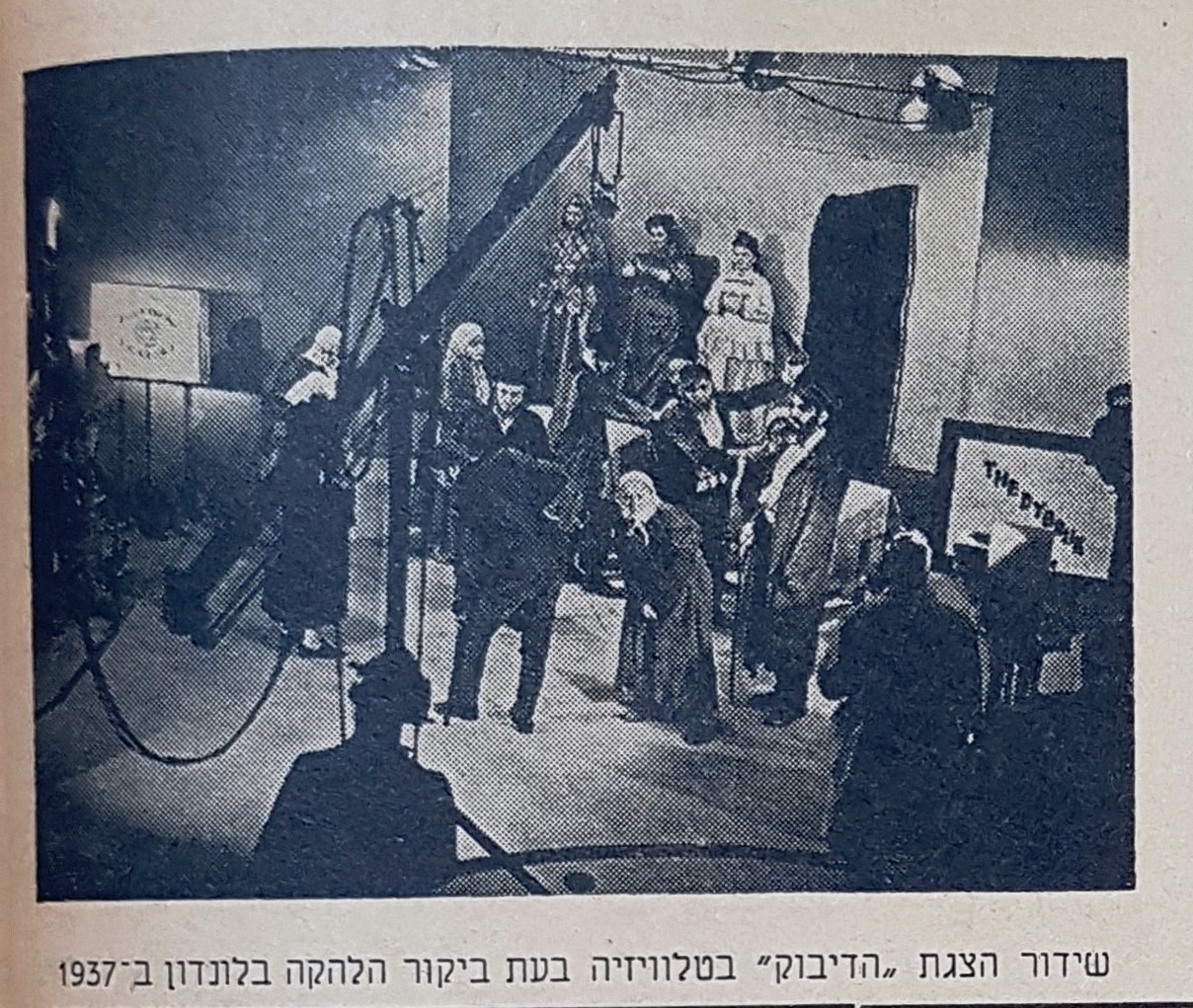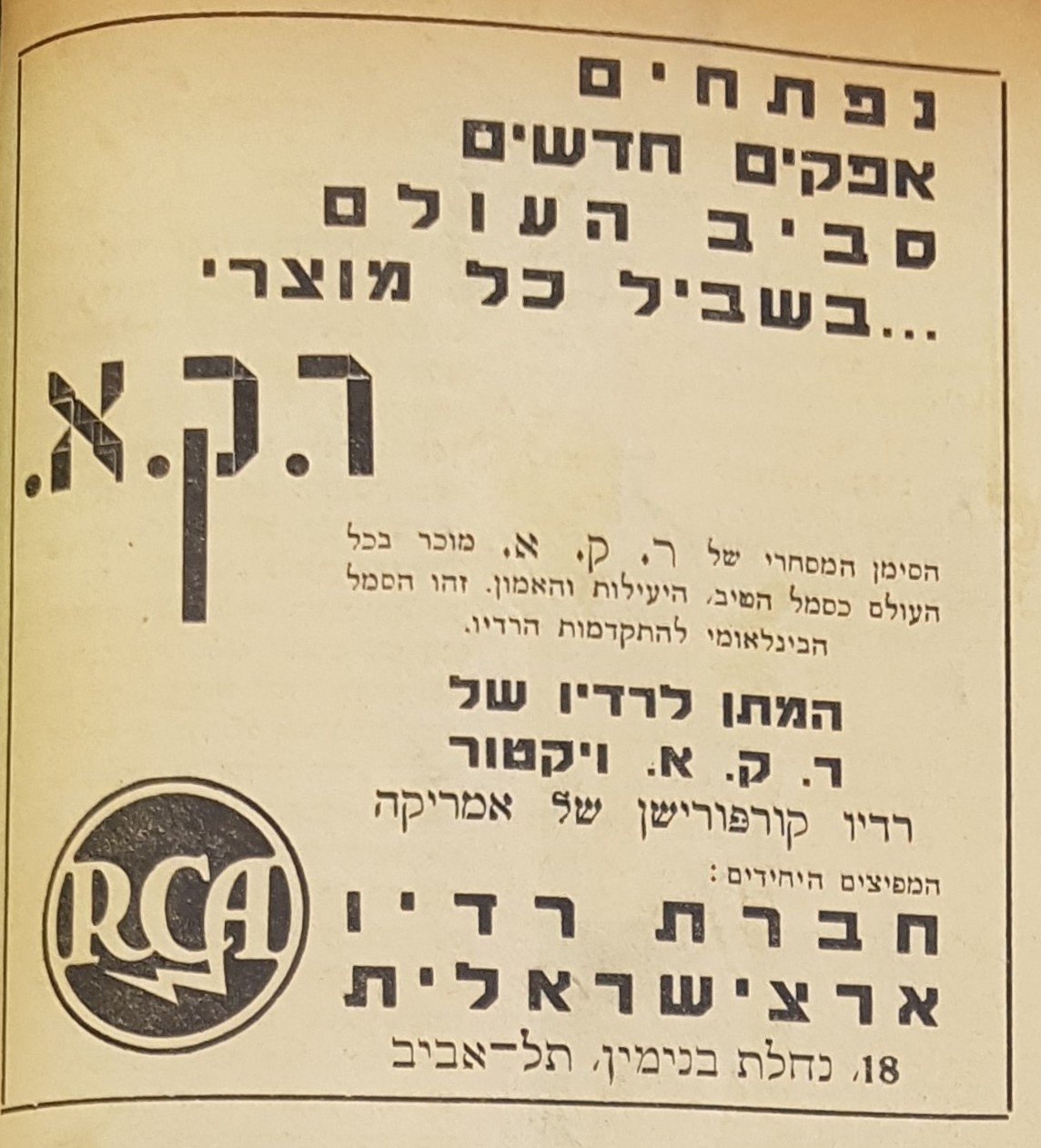
Digitizing History: Palestine Broadcasting Service, 1936-1948
(under Construction)
under construction
TELEVISION
According to Wikipedia article on Television in Israel Israel's first national television service was inaugurated in May 1966. The article completely misses out any events predating the state.However, one should keep in mind that in 1936, while British Mandatory Palestine was setting up the PBS radio broadcasting station, Britain, itself was already moving on to the next level thanks to the Scottish inventor John Logie Baird. That level was television. America too had television. Probably not a well known fact , but in 1937, the BBC produced a televized performance of the play "The Dybbuk" by S. Ansky in London, performed by Habima in their visit to London that year.

Photo: source: Hagalgal Volume 4, No.27, page 10. See also Radio Times Issue no. 737, 1937.
The Habima Theatre in scenes from The Dybbuk with Hanna Rovina and
|

Advert for RCA Store, 18 Nahalat Binyamin Street, Tel Aviv Advert appeared in Hagalgal magazine, volume 4. Issue No. 23 page 24, (2 January, 1947). |
Moreover, there is an article in Hagalgal (Volume 5, No. 33, March 11, 1948, page 3 ) signed only with the initials "Yud Mem" so probably penned by Yehoshuah Meshulach, Hagalgal's resident weekly program critic. This article was out of character. It was as if he had discovered America. He relates that he had just met with Israeli radio pioneer and boffin, Menachem Abramovitch, an electrical engineer, set up the first radio network/studio at the Levant Fair, in Tel Aviv International Exhibition Ground, which lasted till 1935 and he closed it down with arrival of the PBS. In 1948, he had just returned from America, where he had spent the war years, immersed in learning about the new technologies involved in setting up a television station/network. On his return he immediately got to work on his dream and set up a small working television station in the RCA store, 18 Nahalat Binyamin Street, Tel Aviv for demonstration purposes, as proof of concept. It worked. He met with Edwin Samuel. Samuel had just returned from London, where he had the same idea, only he had been shown that the budget would be around one million Lira Palestine. Avramovitch thought that too steep. He could set it up for something like 100,000 - 200,000 lira. He invited Meshulach to take a look for himself. Now the only question was how expensive would it be to set up a national TV service? Politics was not the issue, at that time. It boiled down to money. But the PBS days were numbered as they started to wind down to letthe new state of Israel take over the public institutions. Radio was turned over to the Vaad Leumi, and immediately there was a spate of resignations. Some radio announcers stayed on, others found jobs in the diplomatic core of the new state having made international contacts too valuable to go to waste.
It would be nearly twenty years of labour party/government feet dragging until would reluctantly accept television as a significant means of communication, making sure that only their party, agenda and narrative were going to be dominate all aspects of television.
Further reading
Articles that appear in Hagalgal magazine relating to television: Click Here
| צור קשר: lesliesmith466@gmail.com |